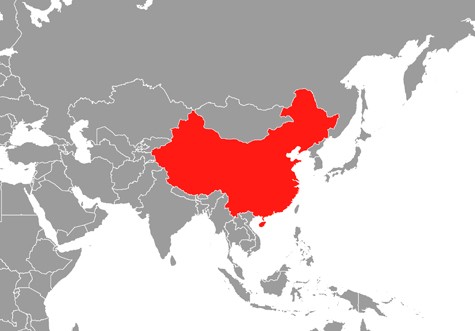
The outbreak and the potential threat of a pandemic has understandably generated strong responses in financial markets as new information is priced into risk assessments., as investors continue to evaluate the uncertain outlook and increasing impacts of the virus.
Media headlines – such as last week's "$36 billion wiped off the value of ASX" certainly grab attention and likely raise anxiety levels.
The challenge for investors is to stay the course. This is one of those periods when the discipline of having a written financial plan – or having a financial planner to discuss things with - can help keep things in the right perspective. What are your long-term goals? Does the current situation materially alter them? Are you on track?
To help investors and their advisers Vanguard's investment strategy group has provided an analysis of what they see as the economic impacts to both China and Australia, published below.
A challenge for China and investors
The coronavirus that is making news for its lethality and rapid spread—and for the selling it has triggered in global stock markets—has a lot in common with the SARS virus that jolted China's economy in 2003.
But China's prompt and internationally coordinated response this time may offer some reassurance that the human and economic effects can be limited, according to Qian Wang, Ph.D., Vanguard's Asia-Pacific chief economist.
As is suspected with the new coronavirus, SARS (severe acute respiratory syndrome, also a coronavirus) started in animals and spread to humans, and quickly became capable of human-to-human transmission. Human contagion coincided with the start of the Lunar New Year, when hundreds of millions travel for China's most festive season.
SARS killed almost 10% of the more than 8,000 people it sickened, according to the U.S. Centers for Disease Control and Prevention, and most of the deaths were in China. It knocked 2 percentage points off China's GDP growth in the second quarter of 2003, with transportation, tourism, and hospitality hit especially hard. Those sectors and retail will likely be among the hardest-hit again, Ms. Wang said.
Yet while the situation is likely to get worse before it gets better, Ms. Wang anticipates acute but short-lived harm to China's growth.
What's different this time?
The main effect on China's economic growth will likely be one of sentiment, Ms. Wang said, with the government's response determining the degree to which people are fearful or confident.
"The good news is that the Chinese government has taken serious actions quickly," Ms. Wang said. Its disclosure of information and policy responses have vastly improved since the SARS outbreak, she said, and the government has instituted "all-out prevention and control efforts."
Vanguard therefore has maintained its outlook for China's 2020 GDP growth at 5.8%, though the risk is clearly tilting toward the downside, Ms. Wang said. While the coronavirus threatens growth in the near term, Vanguard foresees the potential for a rebound in the second half of the year amid anticipated government stimulus.
The spillover to the rest of the world could be limited given a prompt and better-coordinated international public health response this time, Ms. Wang said—though the degree would vary across countries depending on their economic ties with China.
What it means for investors
Investors who saw stock markets continue their 2019 gains into the new year have now seen some of the recent gains evaporate with the coronavirus fears. The 2020 Vanguard economic and market outlook envisioned such volatility, given heightened policy uncertainties, late-cycle risks, and stretched valuations in some markets.
Just as we guide investors to consider vibrant markets in the context of their goals, we do the same when markets are ailing. Know why you invest, maintain a diversified mix of assets to match those goals, and look beyond a troubled short term.
What it means for Australia
At this stage, we believe that the initial direct impact of the viral outbreak on the broader Australian economy is likely to be limited via lower tourism exports to China as Chinese authorities seek to impose travel bans on outbound tour groups.
Referring back to the SARS epidemic in 2003, tourist arrivals to Australia from China indeed fell quite drastically - by 35% over the year - so we could expect to see somewhat of a similar impact this time round.
However, this alone is unlikely to detract too much from domestic growth, with tourism exports to China only accounting for about 0.2% of Australia's GDP. Instead, it simply adds to the list of downside risks posed to the Australian economy following the bushfires experienced late last year, with indirect effects of heightened uncertainty potentially weighing on business and consumer confidence.
Vanguard maintain our below-consensus call for Australia's GDP to center around 2.1% this year.
Written by Robin Bowerman
Head of Corporate Affairs at Vanguard
03 February 2020
vanguardinvestments.com.au
Do you have a question about something you've read in this article? Need more information? Want to book an appointment? Simply let us know below and we'll get back to you ASAP.